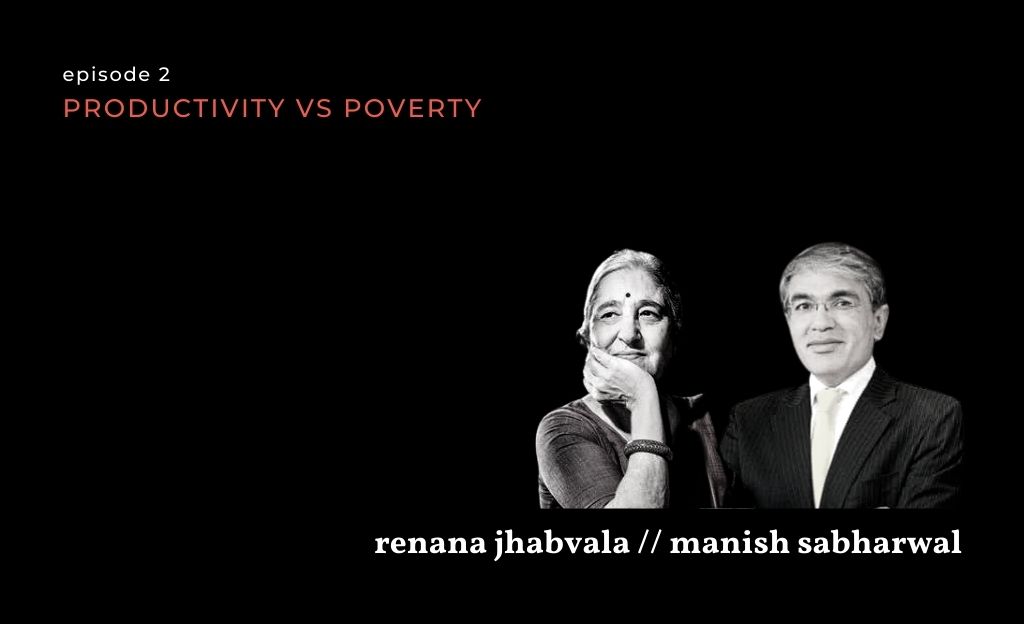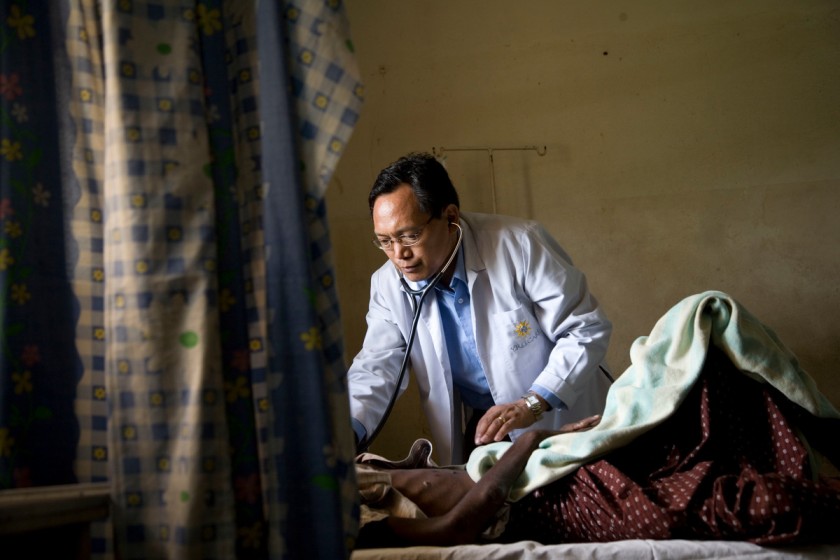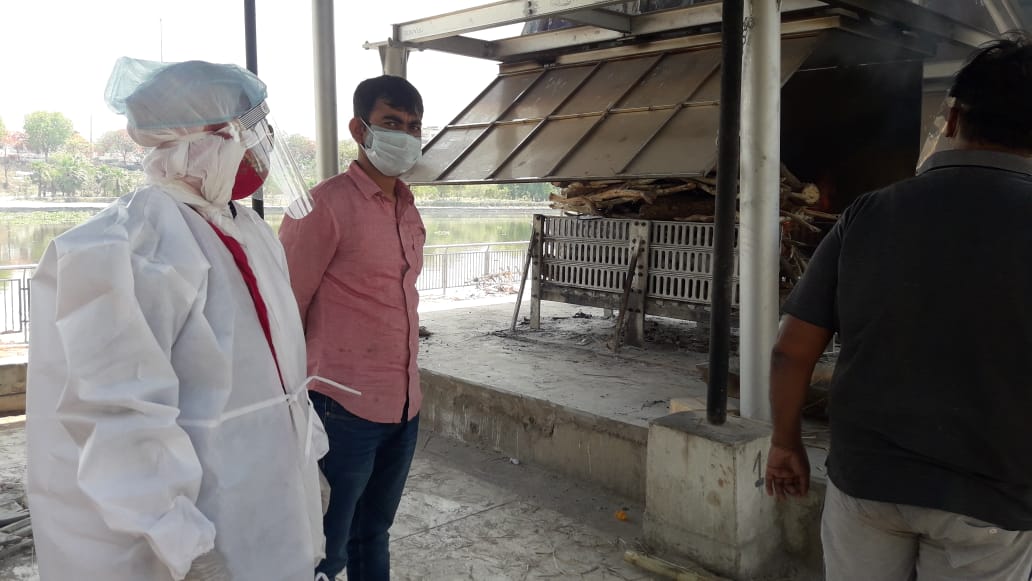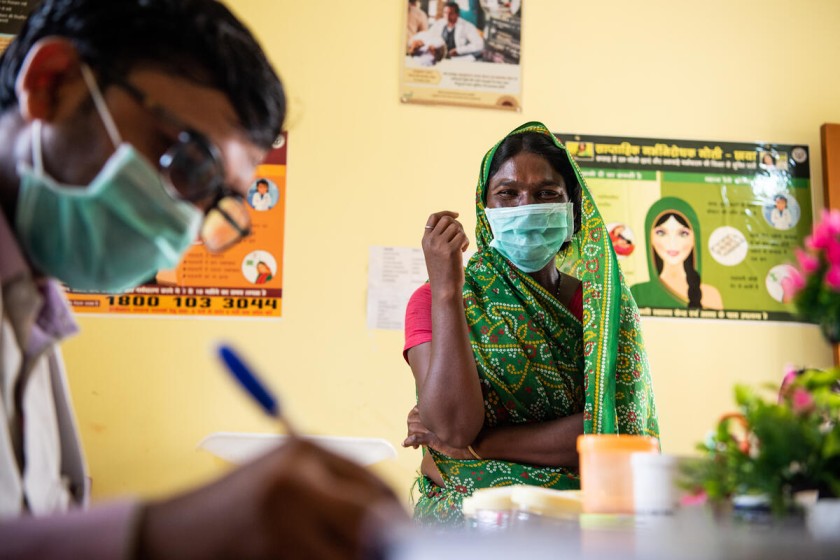Nachiket Mor is primarily focused on the design of national and regional health systems. He is a visiting scientist at the Banyan Academy of Leadership in Mental Health, and a senior research fellow at the Centre for Information Technology and Public Policy at IIT Bangalore. He has also been a member of the Planning Commission’s High-Level Expert Group on Universal Healthcare.
Dr Abhay Bang is a physician, and an internationally recognised public health expert. For the past 30 years, he and his wife, Dr Rani Bang, have lived and worked in the tribal district of Gadchiroli in Maharashtra, where they set up the nonprofit, SEARCH. Dr Bang has served on various government committees, and was awarded the Padma Shri in 2018 for his work on tribal health.
Edited excerpts from the episode:
Dr Abhay Bang
“I think the COVID-19 crisis, apart from the medical and social crisis, also raises the larger questions about our governance about political and economic structure. When COVID-19 arrived in Gadchiroli, the place where I live, a remote tribal area in one corner of Maharashtra, in the first one month, communities sprang into action. Villages introduced lockdown by themselves. They prevented people from coming together; the Sarpanch of various gram panchayats used their local funds and distributed masks and sanitisers. The whole community had risen together to face the challenge, but the problem never arrived. The first case of Corona occurred here in May 2020, and actually the epidemic arrived here in September. By that time, people felt that this was just a rumour, and nothing is really happening. There was no fear. People got exhausted with the lockdown, people relaxed. And then the real problem arrived.
So what we learned is that COVID-19 management in India as a whole—there are 700 districts and there are nearly 700,000 villages—each district and each village is different. So a monolithic arrangement, and administration from taking decisions about every detail about every human being, was absolutely inappropriate. And few medical experts, though they may be very intelligent, very competent, cannot be as intelligent and competent as to govern 140 crore people.
And so COVID-19 showed us how various centralised decision-making, whether medical, administrative, or political, tend to prove inappropriate as well as ineffective; and unfortunately, even counterproductive. As an article in The Economist earlier very appropriately summarised, what the current crisis showed is that medical research and knowledge within one year really made enormous rapid advances, but our politicians and the governance structure miserably failed.”
“That slogan, think globally act locally, is very appropriate. We need to realise the limitations of centralised models. And also, today’s world allows us more decentralised, more localised but connected models.”
Nachiket Mor
“One of the core ideas of a health system and almost any research is that everything cannot be local. Because if everything is local, then there is no learning. Then effectively what we are saying is that whenever you go to a new situation, whether that’s a home or a village or a district, you begin again, from a fresh slate, from fresh perspective. My view is there is no doubt that there is room and enormous opportunity to do that, in order to be effective. But there are indeed common elements that are statewide, nationwide, worldwide, that actually can be brought to bear.
And you know, my understanding is—and it’s also now an evolving consensus in the world—that comprehensive, high quality primary care has to be the bedrock of any health system. And by this, I do not mean only community organised care, I mean, also, expertise that is brought to bear on the ground, as we think about how to solve peculiar problems.”
“Now, this balance has to be struck well, if we go the other extreme, and let the community figure this out, I would submit to you, you will get the kind of variation in response that you saw on COVID-19. The challenge for us in India is that partly, perhaps it is, you know, all of the broader issues that were raised earlier. But it’s also that we have not built the comprehensive primary care system that is necessary. So while we are anxious that perhaps an excessively centralised direction is being given, the reality on the ground is that communities are being left to their own devices. There isn’t really that much care available to them today, so they don’t actually see that centralisation play out, except when it’s a national decision, like a national lockdown, where people are forced to migrate. And in fact, it is communities operating on their own, trying to do the best they can, unfortunately. And that’s the point I want to make. It’s not enough. You do need expertise, you do need people out there that are from the centre. Now the centre could be district headquarters, could be national headquarters, that are available on the ground with the expertise, and with the capability to provide the services that are needed. Otherwise we’re not going to get good healthcare outcomes.”
Dr Abhay Bang
“Now, imagine if we had involved the 300,000 gram panchayats that we have today, and their local leaders, in implementing the behaviour change and the lockdown measures like distancing, etc., and also self-help groups (SHGs), and also civil society. Civil society is practically nowhere in this management of Corona. Civil society in India is as if it doesn’t exist, you take orders only from few experts; the collector gives you orders, he tells you that from today onwards, we are taking over your hospital.
Now he’s following the order which he’s getting from above. This is a very authoritarian model of trying to control Corona, which is currently the problem of 140 crore people. Let them [140 crore people] know what they are expected to do, I am sure they will not do it 100 percent but then communities evolve their own norms.”
“So they will need some help, but the local governance model should be a participatory model, not an authoritarian one. That would work much better. Look, if it was a problem of…only 15 days, maybe you can follow a war-like emergency model. But when you say, ‘learn to live with Corona but I will give you orders on how to live’, that doesn’t work.”
Nachiket Mor
“The Italians, you know, when they went through one of the most visible kinds of meltdown, they wrote and wrote and wrote, requesting us not to rely on hospitals but to work much more closely with primary care systems. The idea was, and we know now from the data, that 80 percent will get okay on their own. Eighty percent of those that fall sick will need basic care, which includes medicine, but also includes importantly, oxygen, which you can give in a home, and you can give in a primary care setting.
The cost of that nationwide is less than INR 1,000 crores. This is a large amount of money for any individual, but not a large amount of money for any systematic approach at the state- or national-level. Yet, most of our facilities do not have this basic element that is useful, not just for COVID-19, but for tuberculosis, for maternal and child health, and for many other aspects. I would submit to you that if we are mounting a strong response, let us do our jobs, let us make sure communities are operating in unconstrained environments, and then turn to the communities and tell them: I know some of what we are saying may not immediately make sense to you. We will try to explain it to you, but the element inside, has to be trust. You have to trust me to do what is right for you. I’m not persuaded that the wisdom of the community will figure out an answer to this question. I do not believe that. It will need engagement from experts to deal with most of the issues that we face today.”
—
Read more
- How you can support nonprofits in their COVID-19 relief efforts in 2021
- How is rural Bihar dealing with the second wave of COVID-19?
- A pandemic, an infodemic, and the fear of vaccination
- Mental health and COVID-19 in India
- Making virtual volunteering work
- Research, for whom?
- A day in the life of a hospital ward worker, who cares for COVID-19 patients at a government hospital
- A day in the life of a sero survey field manager, who works in the slums of Mumbai.
- The wisdom of the crowds
- You cannot bypass the power of communities
- Photo essay: The everyday lives of migrants




